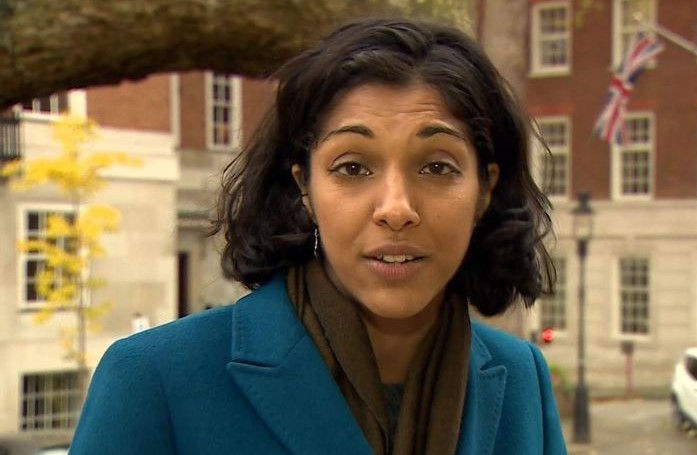Leila Nathoo Origin – A Deep Dive into the BBC Journalist’s Background and Heritage

The Face Behind the News
Leila Nathoo Origin has become a familiar face to many viewers who follow political reporting in the United Kingdom. As a BBC political correspondent, her professionalism, calm demeanor, and insightful coverage of British politics have earned her a respected spot in journalism. But beyond the screen, many people have grown curious about Leila Nathoo’s origin — where she comes from, what shaped her identity, and how her background influences her career in one of the world’s most recognized media organizations.
In an era when representation and diversity in media matter more than ever, understanding Leila Nathoo’s heritage is not just a matter of curiosity — it’s about recognizing the value of multiculturalism in journalism. Her name, appearance, and accent have all sparked questions about her ethnic roots and family history. This curiosity is natural for someone who has become a public figure and a trusted journalist.
So, who exactly is Leila Nathoo Origin, and what is her origin? Let’s explore her background, education, career journey, and cultural influences to paint a complete picture of the talented BBC journalist whose work speaks volumes about credibility and integrity.
Early Life and Family Background
Leila Nathoo Origin was born and raised in the United Kingdom, but her family heritage extends beyond British soil. While she has kept much of her personal life private — as many journalists prefer to do — there are clear signs of her multicultural background. Her surname, Nathoo, is of South Asian origin, most likely linked to Indian roots. Many people with the name Nathoo trace their ancestry to regions in India, particularly Gujarat, where the name is relatively common among Hindu and Gujarati-speaking communities.
It’s believed that Leila’s family, like many others of Indian descent, might have migrated to East Africa during the British colonial period, before later moving to the UK. This migration pattern was very common among Indian families who settled in countries like Kenya, Uganda, and Tanzania in the early 20th century. Eventually, many of these families relocated to Britain after independence movements or political changes in Africa. This makes it likely that Leila Nathoo Origin has a rich cultural heritage influenced by both South Asian and East African traditions.
Growing up in the UK, Leila would have been exposed to a mix of British and cultural traditions from her family’s background. This kind of upbringing often creates a strong sense of adaptability and multicultural understanding — qualities that have clearly shaped her approach as a journalist. Her ability to communicate across different audiences, handle complex political issues, and present balanced reports suggests that she has an instinctive grasp of diversity and nuance.
Education: Building a Foundation for Journalism

Education has always been a cornerstone of success for many British journalists, and Leila Nathoo Origin is no exception. Though specific details about her schooling are not widely publicized, it is known that she attended the University of Nottingham, one of the UK’s most prestigious universities. There, she likely studied subjects related to politics, economics, or journalism — fields that have clearly influenced her career path.
Her academic background helped her develop critical thinking, analytical, and communication skills — all of which are essential in journalism. University life would also have exposed her to political debates, student journalism Leila Nathoo Origin, and the early stages of the British media landscape. These experiences likely helped her understand the importance of objectivity, fact-checking, and credibility — traits that define her reporting style today.
Leila’s transition from a university student to a political correspondent at the BBC is not only a testament to her dedication but also to her ability to thrive in a competitive environment. The BBC, after all, is one of the toughest places to establish oneself as a journalist. Her journey from education to professional reporting showcases the hard work and perseverance that go hand-in-hand with success in this field.
Career Journey: From Aspiring Journalist to BBC Correspondent
Leila Nathoo Origin’s career with the BBC has been marked by steady growth and professional excellence. She began working with the organization as a reporter, gradually moving up to her current role as a political correspondent. Her focus is primarily on political news, including government decisions, parliamentary proceedings, and policy changes that affect the UK and beyond.
Throughout her career, Leila has covered several major political stories — from general elections and leadership transitions to Brexit developments and domestic policy debates. Her on-screen presence, professionalism, and sharp analytical approach have made her a trusted voice for viewers seeking clarity in a complex political climate.
Leila’s reporting style stands out for its balance. She doesn’t sensationalize the news or let personal opinions influence her analysis. Instead, she presents facts clearly and allows viewers to form their own judgments — a hallmark of responsible journalism Leila Nathoo Origin. This integrity has earned her the respect of colleagues and audiences alike.
Beyond television, she has also contributed to digital and radio platforms within the BBC, demonstrating versatility in adapting to different media formats. This multi-platform experience reflects the modern journalist’s need to connect with audiences across diverse channels — something Leila has mastered.
Cultural Heritage: Understanding Leila Nathoo’s Origin
While Leila Nathoo Origin identifies as British, her cultural roots add a unique dimension to her identity. Her South Asian heritage — likely Indian or East African Indian — brings a layer of depth and richness to her personal story. In Britain’s multicultural society, journalists from diverse backgrounds play an important role in broadening perspectives and ensuring inclusivity in the media.
The fact that Leila has thrived in such a highly competitive field is significant. For many second- or third-generation immigrants, achieving prominence in British media represents not only personal success but also a reflection of how far multicultural Britain has come Leila Nathoo Origin. Her presence on-screen signals to young people of all ethnicities that talent and hard work matter more than one’s background.
Leila’s cultural heritage also likely shapes her understanding of global issues. Having roots connected to multiple continents gives her a broader worldview — something essential for a political correspondent covering both domestic and international affairs. Whether she’s reporting from Westminster or analyzing foreign policy, her perspective is informed by a deep awareness of cultural diversity and global dynamics.
Professional Values and Public Perception
Leila Nathoo Origin’s professionalism has become her signature trait. She is known for her calm reporting style, objective tone, and clear communication. Unlike some journalists who lean toward sensationalism or personal branding, Leila has maintained a focus on substance over style. Her work reflects a deep commitment to factual accuracy, neutrality, and public trust.
Viewers often appreciate her balanced approach to political coverage — especially during times of intense division or debate. Whether discussing government policies or election outcomes, Leila presents information with fairness and context. This approach has earned her credibility in an industry where trust can be fragile.
Public perception of Leila is overwhelmingly positive. She’s regarded as one of those journalists who quietly do their job exceptionally well without seeking the spotlight. In many ways, her success story embodies what journalism is supposed to be: a pursuit of truth, clarity, and accountability.
Leila Nathoo’s Global Influence and Representation
In a world where media plays a powerful role in shaping opinions and bridging cultural divides, journalists like Leila Nathoo Origin carry significant influence. Her presence in mainstream British media serves as an example of inclusion and representation Leila Nathoo Origin. Viewers from South Asian or multicultural backgrounds often find inspiration in seeing someone who reflects part of their heritage reporting on national issues with authority and respect.
Representation in journalism is about more than appearances — it’s about diverse perspectives informing the way stories are told. Leila’s success at the BBC demonstrates that diversity strengthens journalism by bringing different experiences and insights to the table. She is part of a generation of reporters who are redefining what it means to be British in the modern media landscape.
Her influence extends beyond the UK, as her reporting is also seen internationally through the BBC’s global channels. For audiences worldwide, she represents not just the voice of British news but also the evolving face of journalism that values inclusion and truth.
Conclusion: A Story of Heritage, Hard Work, and Integrity
Leila Nathoo Origin’s origin is a story of cultural richness Leila Nathoo Origin, professional dedication, and journalistic excellence. While she may keep her personal life private, her career and presence tell us everything we need to know about her values. Her South Asian heritage, likely rooted in India and shaped by British upbringing, has contributed to the depth of perspective she brings to her reporting.
As a BBC political correspondent, Leila embodies the principles of accuracy, fairness, and respect for truth. Her journey is a reminder that journalism thrives when it includes diverse voices and experiences. In a media world often dominated by loud opinions, her calm and factual style stands as a beacon of integrity.
Leila Nathoo Origin’s story — from her multicultural origins to her position in British media — continues to inspire aspiring journalists around the world. Her success reminds us that understanding one’s roots is not about limiting oneself but about embracing the full spectrum of identity and experience that shape who we are and how we tell the world’s stories.



